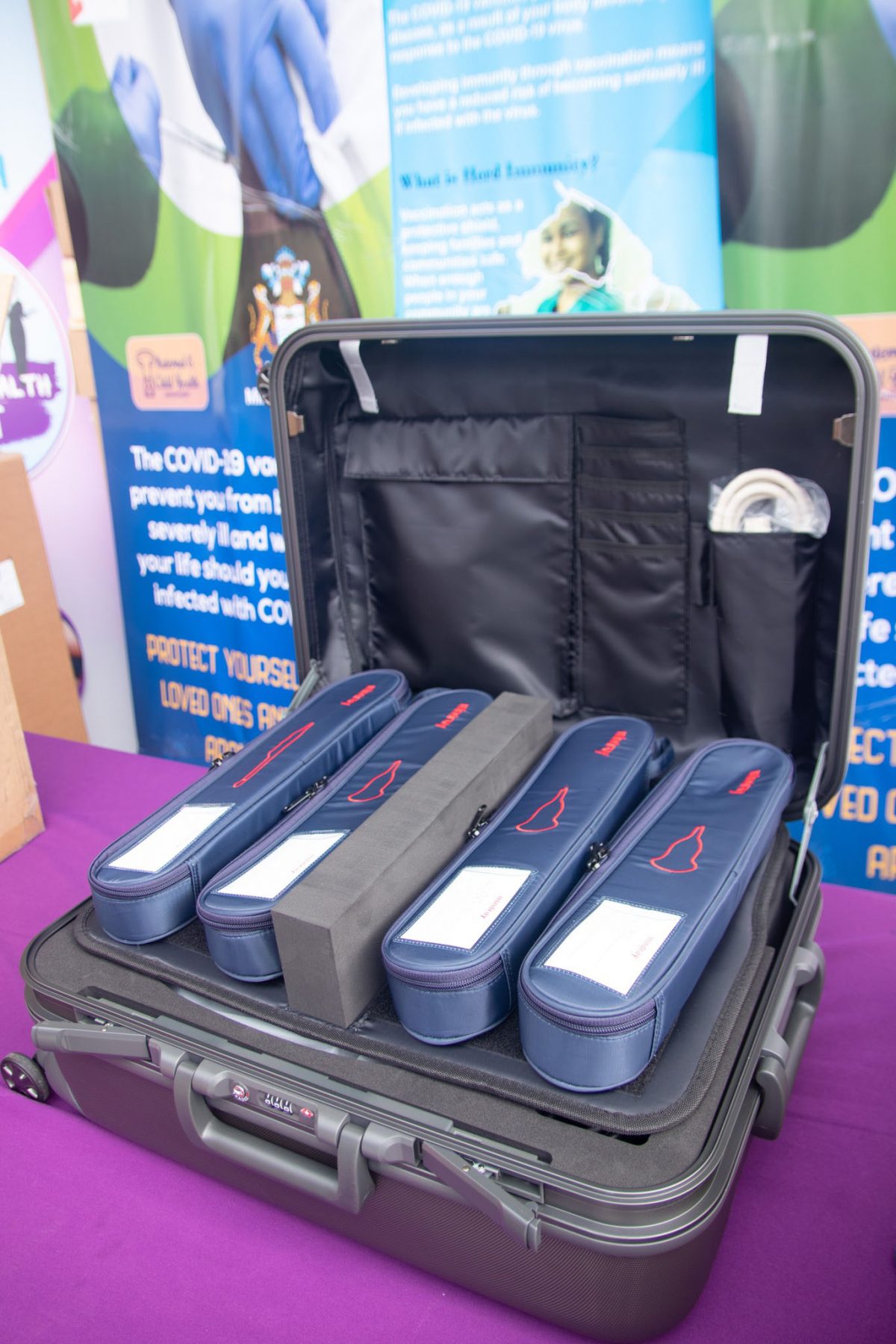Rural and hinterland health centres were given a boost with the donation of equipment from the Pan American Health Organisation/World Health Organisation (PAHO/WHO).
A release from the Ministry of Health (MoH) yesterday stated that on Wednesday, it received a total of forty-four pieces of equipment from PAHO/WHO to aid in the strengthening of the Maternal, Adolescent and Neonatal Health and Immunization Programme. The items, which were handed over in a ceremony at the ministry’s Central Supply Unit (CSU Bond), located in Kingston, were funded by the Global Affairs Canada Project – Improved Health of Women and Adolescent Girls in Situations of Vulnerability (2021 – 2025).
Attendees at the event included Minister of Health, Dr Frank Anthony; PAHO/WHO Representative to Guyana, Dr Luis Codina; Maternal and Child Health Officer, Dr Oneka Scott; Women’s Health Coordinator, Dr Maneke Williams; Medex Andrea Budburgh, and other staff of MoH and PAHO/WHO.
Among the items donated were gynecological examination beds, LED examination lamps, portable ultrasound machines, fetal Dopplers, and a solar refrigerator.
Minister of Health, Dr Frank Anthony, during his brief remarks, thanked PAHO/WHO and the Canadian Government for their steadfast donations. He noted that within the rural regions of Guyana, the ministry is constantly trying to upgrade their Cold Chain Storage to ensure that adequate storage for vaccines is at the level of health centres. “Several of the health centres in the rural areas in the hinterland regions do not have electricity, so the only way we can have refrigerator work properly is to make sure they are solar,” he said.
Anthony pointed out that to improve maternal health within the country, each region should be equipped with proper and adequate equipment to provide quality services.
“We want to ensure we have the right equipment out in the region so that we can make a better diagnosis and ensure that if we discover problematic pregnancies, we can take the necessary precautions so that mothers can be saved.”
Meanwhile, Dr Codina, informed that through the Global Affairs Canada Project, works are being done to address the high numbers of adolescent pregnancies specifically in regions One (Barima-Waini), Four (Demerara-Mahaica), Seven (Cuyuni-Mazaruni), Eight (Potaro-Siparuni), and Nine (Upper Takutu-Upper Essequibo).
He added that with the work the MoH is doing along with the equipment they are receiving, the health services will be reinforced to provide better care for adolescent girls and women in particular.






